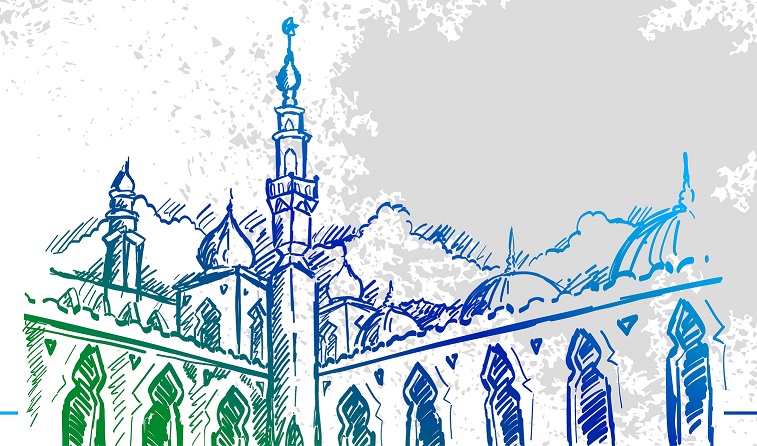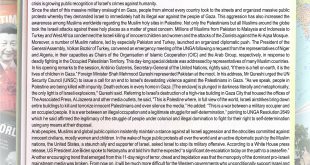Responsibilities of Civil Servants
Islam enunciates guidelines for establishing an efficient, effective and just system of governance that is based solely on wellbeing of the people, which is the essence of a welfare state. Government job is a sacred trust and official responsibilities must be discharged in line with parameters set by the Holy Quran and the Sunnah of the Holy Prophet (PBUH). According to the teachings of Islam, civil servants have following major responsibilities:
Ata-ur-Rehman Khilji
- Civil servants and public representatives have dual responsibility: first, just like ordinary people, they are responsible to Allah Almighty for all of their worldly deeds; and second, unlike ordinary people, they are also responsible to other people for their actions as they are servants of the people. They are paid from the national exchequer and they can be removed from office if they happen to be corrupt, cruel and inefficient. Subsequent to a holy war during the reign of second caliph of Islam, Hazrat Umar (RA), spoils of war were distributed among Muslims including the caliph. Each one was given one sheet of cloth. But during the Friday sermon, the caliph was having two sheets of the distributed cloth, so a person asked the cause for that from all powerful sitting head of Islamic state. The caliph did not get infuriated at that query and politely informed that person that one sheet belonged to him and the other to his son.
- Civil servants are required to be honest as they are custodians and not owners of public property. They are required to exercise care in spending public money as elaborated in Rules 10 of GFR that states that a public servant would exercise same diligence in spending public money which a man of ordinary prudence would exercise while spending his own money. In this regard, we are having the life of the Holy Prophet (SAWW) as role model for us. Albeit he was the political, military and spiritual head of Muslims, but he led a very simple life and was having impeccable integrity that can be judged from this statement of the mother of believers Hazrat Ayesha (RA), “On the day of demise of the Holy Prophet (PBUH), we were having nothing to eat at night.”
iii. The civil servants are required to have complete understanding of their responsibilities as well as the knowledge/education required for their position so that they could discharge their responsibilities in an efficient and effective manner because every government official is a judge in his domain. The Holy Prophet (SAWW) said, “There are three kinds/groups of judges out of which two groups would go to hell and one would go to paradise. The first group that would go to hell is comprised of those judges who know law but don’t decide with justice. The second group of hell consists of those judges who don’t know law but still adjudicate cases. The only group that would go to paradise is those judges who know the law and dispose of cases with justice/on merit. In consonance with instructions of the Holy Prophet (PBUH), some selected companions learnt foreign languages for properly discharging their diplomatic responsibilities.
- Civil servants are required to decide official matters as per shariah. When Hazrat Ma’az bin Jabbal was appointed governor of Yemen, the Holy Prophet (SAWW) said to him, “How are you going to decide cases?” He replied that he would decide cases according to Holy Quran. The Holy Prophet (PBUH) than asked, “If there is no such thing in Holy Quran, then?” He stated that then he would resort to the way of Holy Prophet (SAWW). The Holy Prophet (PBUH) again asked, “If there is no such thing in sunnah too, then?’ He stated that he would exercise his judgment. The Holy Prophet (PBUH) was pleased with his answer.
- Civil Servants are required to lead simple lives that are proportionate to their known sources of income. They are not allowed to adopt royal lifestyle or to indulge in ostentation. The four orthodox caliphs used to lead simple lives by living in mud houses and were not having servants and security guards. They were drawing small amount as salaries from national exchequer that was hardly enough to make both ends meet. These principles have also been enshrined in the Civil Servant Act 1973 and Government Servants Conduct Rules 1964 prescribed for government servants in our country.
- Civil servants are required to be accessible and available for the general public especially during office hours for redressal of their genuine grievances. The second caliph of Muslims Hazrat Umar (RA) appointed judges (qazis) and fixed their salaries but did not build separate offices for them as they were told to sit in mosques so that the masses could have easy access to them.
vii. Civil servants are required to be neutral while disposing of official matters. They are not allowed to discriminate among people on the basis of colour, creed, wealth, language, lineage, area or ethnicity, etc. Once a lady of Quraish belonging to an influential family was nabbed for committing theft and the charge was proved against her. Some important members of her clan came to the Holy Prophet (SAWW) and sought pardon/respite for her, which was not liked by the Holy Prophet (SAWW) and he said, “Even if my daughter Fatima (RA) had committed theft, I would have issued HADD. The nations prior to you were destroyed on account of not having uniform standards of justice.”
viii. Civil servants are required be kind-hearted and polite, and they must avoid harsh attitude and anger as the Holy Prophet (SAWW) said, “Bad temper spoils the work the way vinegar spoils honey.” However, they should not be lenient in carrying out administrative and judicial decisions
- Civil servants should not consider them above the law as according the shariah the rulers and common people are equal in the eyes of law. The fourth caliph of Muslims Hazrat Ali (RA) said, “A society can survive with disbelief/infidelity but could not survive with injustice.” In this regard we are also having the example of Qazi Shuraih who gave a judgment against the fourth rightly-guided caliph, i.e the sitting head of Islamic state.
- A civil servant is required to be a trouble shooter and not a trouble maker. He is required to avoid red-tapism as much as possible and to dispose of official matters in a smooth, timely, lawful and pleasant manner. In this regard there is brief but comprehensive saying of the Holy Prophet (SAWW) reported in Sahih Bukhari in which he said, “Simplify things for people, don’t complicate things, give good tidings to people and don’t make them run away from Islam.”
Email: attayaseen@yahoo.com
 Jahangir's World Times First Comprehensive Magazine for students/teachers of competitive exams and general readers as well.
Jahangir's World Times First Comprehensive Magazine for students/teachers of competitive exams and general readers as well.





